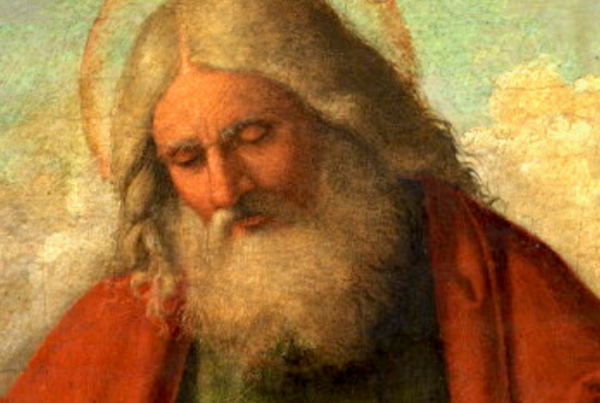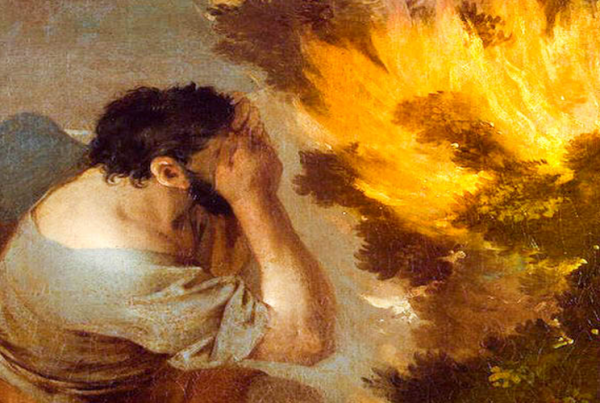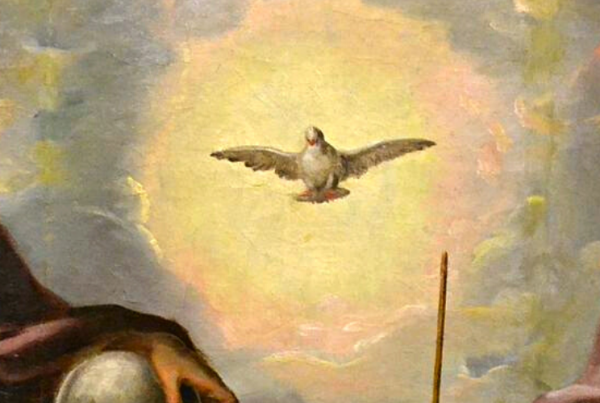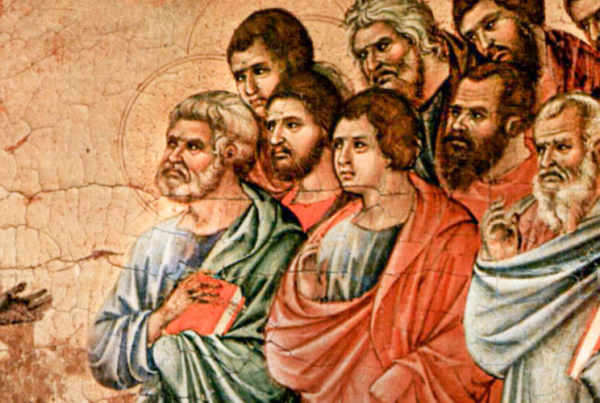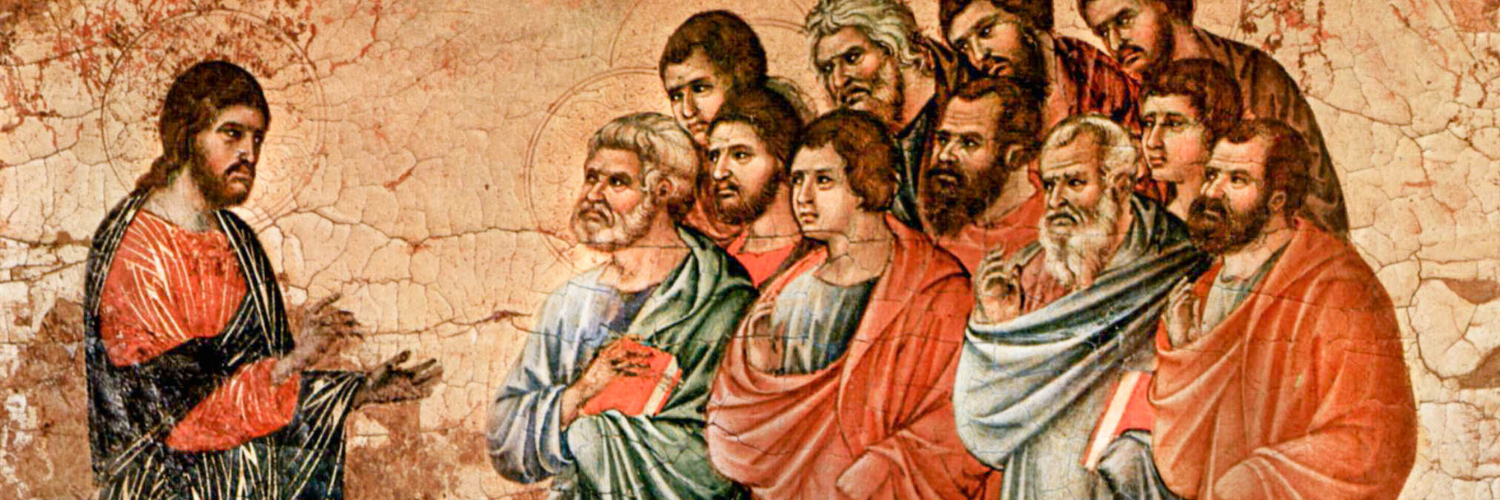
False Starts On God
Fr. Paul Stein
If you believed that the earth is flat, would that change the way you live? It would if you were a sailor, for you wouldn’t try to circumnavigate the globe. What if you falsely believed that the Father, Son, and Holy Spirit are really just one God pretending to be three different persons? What if you believed that God is not the Trinity, but rather, a solitary reality acting in different modes that we now call the Father, Son, and Holy Spirit? If that were the case, you would eventually decide that it is not worth listening to Jesus and stop following him. You would no longer be a (Catholic) Christian for you would believe a heresy.
The Catholic Church has official teachings we call doctrines.[1] The most important teachings or doctrines are called dogmas. Hence, dogma is a subset of doctrine. These more important teachings are considered core teachings, in that, if you deny one, you effectively stop believing. To hold to true or correct doctrine is orthodoxy (from the Greek: orthos, meaning “right, true or straight,” and doxa, “opinion” or “praise.”) To deny Church doctrine is generally termed heterodoxy, but more specifically, to deny (a) dogma is heresy. An analogy for heresy is that of a child disassembling a remote toy car to see how it works. In reassembling it, he does it incorrectly and leaves out a key part(s). The toy car no longer runs, it no longer works: it stops.[2]
If you don’t believe Jesus is truly God incarnate, the God-man: why would you ultimately follow him?
The Jews of the first century clearly believed there is one God and only one God. Then a certain Jesus of Nazareth showed up, proclaiming he is the Son, that the Father sent him, and that he would ask the Father to send the Holy Spirit. He also suffered and died on a cross, and then rose from the dead three days later; all of it, as he put it, was to offer us salvation from sin and everlasting death (i.e., hell).
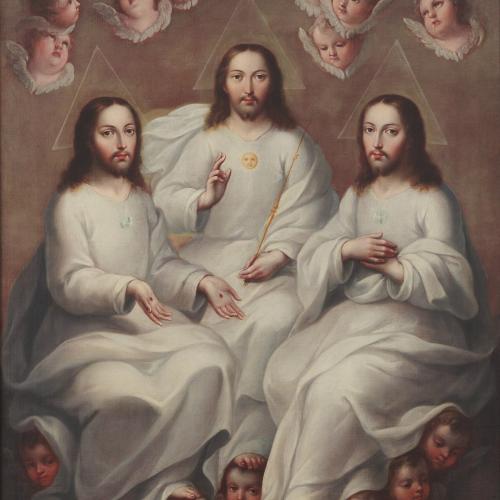
If you don’t believe Jesus is truly God incarnate, the God-man: why would you ultimately follow him? He clearly claimed to be God; that was what got him killed (in his humanity). One early heresy in the Church was Arianism, the belief that Jesus is the highest creature, but not actually God. Similarly, Jesus clearly speaks to God as though he is a different person, the Father. He calls himself the Son and speaks of the Father and Son sending another, called the Holy Spirit. If there are not three different “persons” or unique “identities” in God, then Jesus’ speech is meaningless at best, or at worst, indicative that Jesus is schizophrenic. Why then, if the one God is not a Trinity of persons, would anyone be a (Catholic) Christian? It wouldn’t make sense.
Orthodox belief holds together two seemingly contradictory ideas: that God is one and God is three.
Yet, there is no contradiction, only a failure of our finite minds to understand the infinite God. The dogma of the Trinity is not irrational but suprarational. Rather than think of 1F + 1S + 1HS = 3 gods; it is better to consider that 1F x 1S x 1HS = 1God.[3]
A heresy is, in some ways, a false start; it is an attempt to understand what happened in Jesus of Nazareth and gets it wrong. It is taking apart the toy car and putting it back together incorrectly. Trying to insist that there is only one God, but not three different persons can lead to Sabellian Modalism. Sabellius was a third-century priest who advocated the idea that God is really one person who acts in three different modes, of the Father, the Son, and the Holy Spirit. The three “persons” are not actually distinct identities, but merely three different ways of acting. If that were true, it would be extremely problematic. How could we believe Jesus’ words let alone baptize in the name of the Father, Son, and Holy Spirit according to Matthew 28:19.
A modern form of this heresy has been seen in recent years in deacons, priests, and bishops who baptize in the name of the Creator, Redeemer, and Sanctifier. Thinking they are being “inclusive,” such clergy are espousing something dangerous. Why is that? The actions of God, outside of himself (ad extra), are common to all three persons. The Trinity creates. Therefore, the action of creation is common to all three persons, the Father, Son, and Holy Spirit.[4] Whenever we describe the action of one person of the Trinity, such as the work of the Holy Spirit at Pentecost, the other persons are always there. Pentecost is as much the action of the Father and the Son as it is of the Holy Spirit.
The action of creation is common to all three persons, the Father, Son, and Holy Spirit.
When we speak, and even in the Nicene Creed, we tend to speak of Father as creator, and the Son as savior. Note, however, that calling the Father the “creator” is not meant to exclude the Son and the Holy Spirit as also being creator. That is why in the Creed, after speaking of the Father as “maker of heaven and earth,” it continues to speak of the Son as “God from God… consubstantial with the Father.” The Father creates, as does the Son, and so too does the Holy Spirit. The Son and Holy Spirit are not excluded from the act of creation. However, to baptize in the name of the “Creator, Redeemer, and Sanctifier,” as opposed to the “Father, Son, and Holy Spirit” is to do one of two things:
- Imply that there are three gods: one is the creator god, another is the redeemer god, and the other one is the sanctifying god.
- Imply that the one person acts in three different modes, that God is acting as creator, then as redeemer, then as sanctifier.
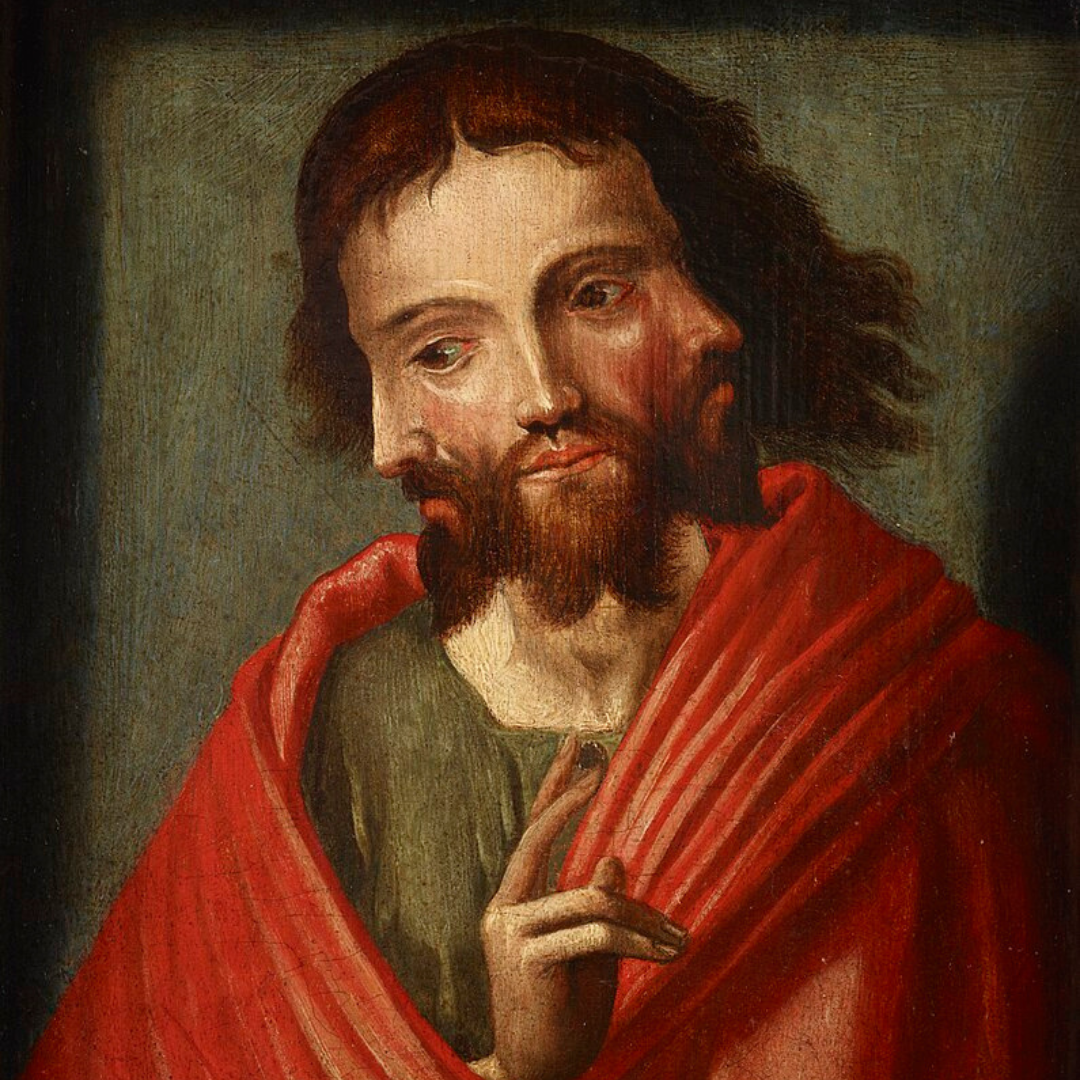
Since, we would presume, that those engaging in such a practice are probably not pagan – believing in three gods – then they are at least implicit modalists, believing in a heresy.
What This Means For Us
Does such a topic as this one, a false belief in the Trinity actually affect people’s lives? It does. This author once went to a barber who, in the course of a debate over the Bible, specifically the Trinitarian baptismal formula in Matthew chapter 28, identified himself as a Sabellian Modalist. He added, “and the Catholic Church considers me a heretic.” This author’s response was, “and so do the Lutherans, the Evangelicals, the Baptists, and the Presbyterians.”
There is a priest in the Archdiocese of Chicago, a friend of this author, who years ago had to contact a very large number of families to inform them that their child had been improperly baptized by a previous pastor. The baptism was invalid, meaning, it didn’t work. The children were not cleansed of the stain of original sin, they were not adopted by God as his children, and they did not receive sanctifying grace… all because the pastor thought he was being “inclusive,” by baptizing the name of the Creator, Redeemer, and the Sanctifier. Those children had to be baptized correctly, in the name of the Father, Son, and Holy Spirit.
In the end, our belief in the Trinity explains how we can say that God is Love, why God made a creation he doesn’t need, and even why he would become incarnate and die on a cross to save us. This teaching is absolutely essential, and hence, why the doctrine of the Trinity is a dogma.
Footnotes
[1] The word’s origin is the Latin doctrina, coming from the Latin doctor. Long before that word meant a medical professional, it meant a teacher. Hence a PhD is a Doctor of Philosophy. This also recalls that the intellectual discipline and study of philosophy included mathematics, logic, and the functioning of the natural world. What we now call “science,” used to be considered natural philosophy.
[2] Credit to Rev. Lawrence Hennessy, Mundelein Seminary of the University of St. Mary of the Lake, for the analogy.
[3] Credit to Rev. Lawrence Hennessy.
[4] This topic would entail the concept of circumincession (origin Latin), also rendered as perichoresisi in Greek. This refers to the mutual indwelling, or the one-in-the-other, of the persons of the Trinity. Jesus’ states it as: “I am in the Father and the Father is in me”(John 14:10). Since all three persons share one existence, the Father is in the Son, and the Son is in the Father, and they are in the Holy Spirit, as the Holy Spirit is in the Father and the Son. That is why whenever you encounter one person of the Trinity, you always find the other two.
FOR FURTHER READING ON THIS TOPIC
